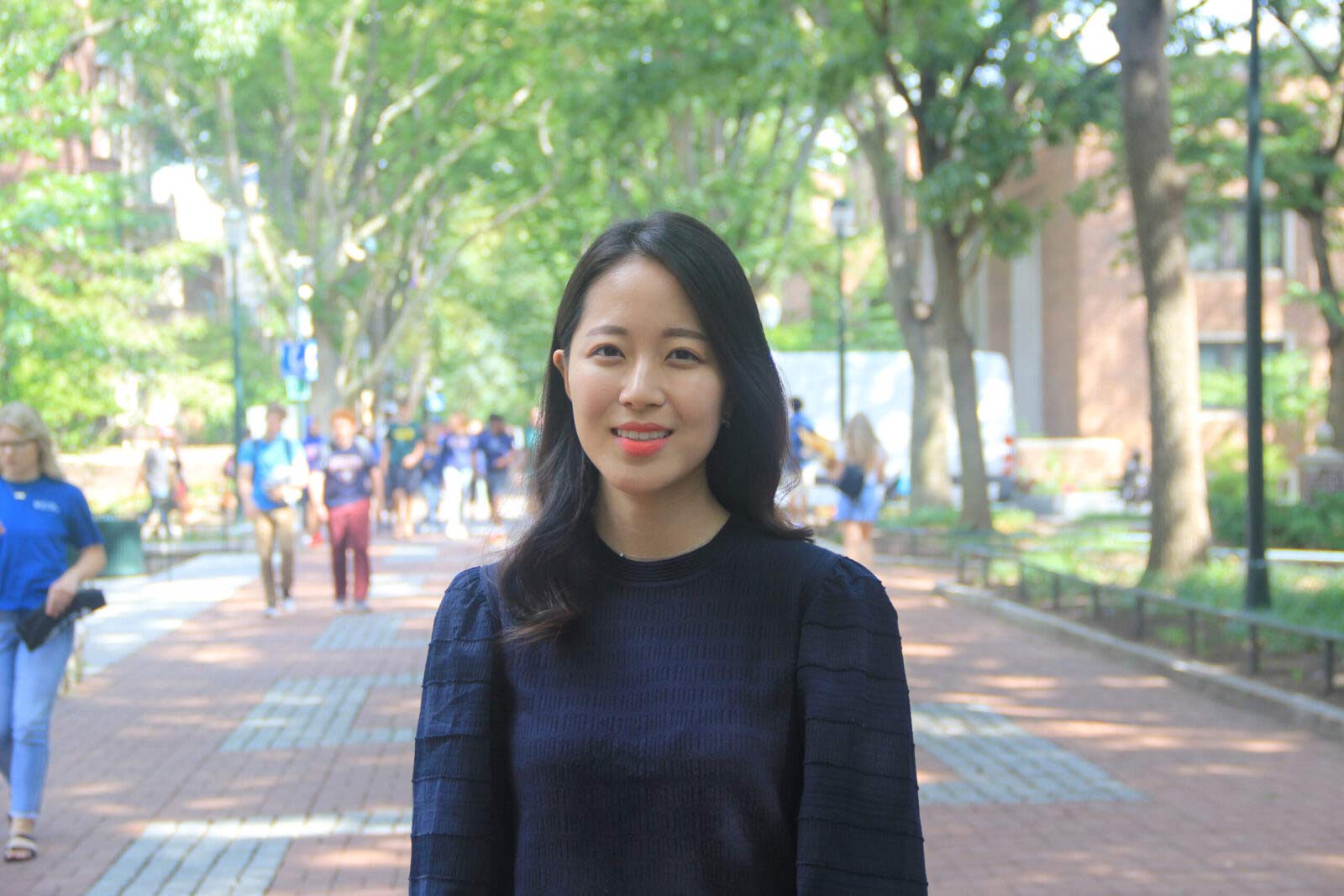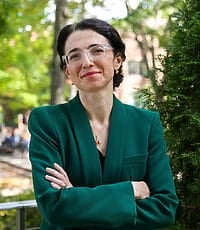News Details
PhD Student Awarded Research Grant from Alfred P. Sloan Foundation

Authored by: Alina Ladyzhensky
Photography by: Provided
Faculty & Research, Student Life
03/01/21
Hyeri Choi, a PhD candidate at Penn’s School of Social Policy & Practice (SP2), has received a significant research grant from the Alfred P. Sloan Foundation. The grant, totaling $125,516 over three years, will enable Choi and her advisor, SP2 assistant professor Ioana Marinescu, PhD, to quantify how employer market power contributes to the persistence of unemployment and underemployment after a recession, understand how unemployment and underemployment evolve during a recession and its aftermath, and examine policy innovations that could deliver a stronger recovery in the labor market.
“This grant is meaningful to me not only because it’s the first research grant that I actively worked with, but also because it has been a great opportunity for me to learn a collaborative research process from the very beginning,” Choi said. “In our first meeting, we shared our research interests and came up with a research topic that we would be both interested in. Our research was based on a relationship of equity, working together to achieve mutually determined and mutually beneficial goals. I am grateful to see an output for this project. Dr. Marinescu has been a great mentor throughout this process.”
Even before they became a formal part of her scholarly pursuits, helping others and addressing economic inequality have long been important tenets in Choi’s life. When she was a high school sophomore, Choi won a $600 scholarship for earning among the highest grades in her school. She chose to give the scholarship money to a student in need— a clear indicator, even then, of Choi’s research priorities to come.
“I donated the money to a student whose livelihood was endangered because I believed it would be much more valuable to her. I was thankful that I could contribute my resources to someone in need,” Choi shared. “Since this experience, I endowed all my scholarships to financially underprivileged students before transferring to Stony Brook University. I expect to keep contributing my educational opportunities to economic justice by serving vulnerable populations through research intervention, and expand my educational boundaries as a scholar in the U.S.”
Prior to entering SP2’s PhD in Social Welfare program, Choi earned dual bachelor’s degrees in Social Work from Stony Brook University, New York, and the University of Seoul in South Korea. She went on to obtain a Master of Social Work (MSW) degree from Columbia University, with a policy concentration. Pursuing her strong interest in the policy world, Choi worked at former U.S. congressman Steve Israel’s local office and the National Assembly of the Republic of Korea as a social work intern. She also gained research experience in the Center for Research on Fathers, Children, and Family Well-Being at Columbia University and the Korea Institute for Health and Social Affairs (KIHASA).
Choi saw SP2 as the most fitting place to delve into her research and policy passions due to its interdisciplinary PhD program, as well as the alignments between her academic interests and those of her now-advisor, Dr. Marinescu.
“My research interest in public benefits and the well-being of children in low-income working families requires not only knowledge on social work, but also insight on human development, data science, economics, and public policy,” Choi said. “The program provides full access to a wide array of courses and values an interdisciplinary perspective.”
“While I am open to designing various types of social policies, my current interest is in labor market policies and child care subsidies,” she added. “Dr. Marinescu is a labor economist and a great policy analyst, evaluating the labor market impact of public policies. Thus, she seemed to complement my research arena very well.”
Choi’s PhD research focuses on low-income working parents’ economic instability and work-family conflict. She is particularly interested in how parental labor market experiences and income can impact a child’s well-being.
“I believe that it is imperative to reduce parents’ economic pressure, enhance their employment stability, and provide higher-quality early childcare to improve a child’s well-being. This requires social policy changes and legislative initiatives,” Choi said. “[I]n an effort to improve the design and delivery of public benefits, my goal is to understand the mechanism of existing policies that were created to improve the parents’ and child’s well-being by studying relevant theories and empirical research.”
At SP2, Choi has enhanced her research knowledge of how to approach today’s policy challenges, as well as broadened her research scope through her work with Marinescu. Currently, she is studying involuntary part-time workers (IPT), who work fewer than 35 hours per week and cannot find a full-time job due to slack business conditions.
In economics, “slack” refers to insufficient demand relative to what the economy is capable of producing. As Choi explained, involuntary part-time workers are likelier to work in low-wage settings with unstable work hours. These workers’ labor market experience may also have spillover effects onto their familial lives by leading to inconsistent routines, low-quality childcare, and family stress.
“Dr. Marinescu and I are trying to understand how employer power or public policies contribute to explaining the prevalence of involuntary part-time employment,” she said. “This current project broadens my research scope, as it provides me an opportunity to analyze a social problem from a macroeconomic perspective.”
In the short-term, Choi plans to continue conducting research in the U.S. as a post-doctoral fellow and examining the risk and protective factors for low-income working parents with young children. Ultimately, she foresees becoming a scholarly leader who promotes macro-level interventions for vulnerable populations through research.
“Upon completing my doctoral degree, I envision myself consistently seeking a balance between these two roles: a professor building theoretical frameworks using data to demonstrate the necessity of policy reform and a political, social work practitioner closely working with the government,” Choi said. “Through these roles, I hope to witness the direct effects of a policy change that my research will have propelled.”
